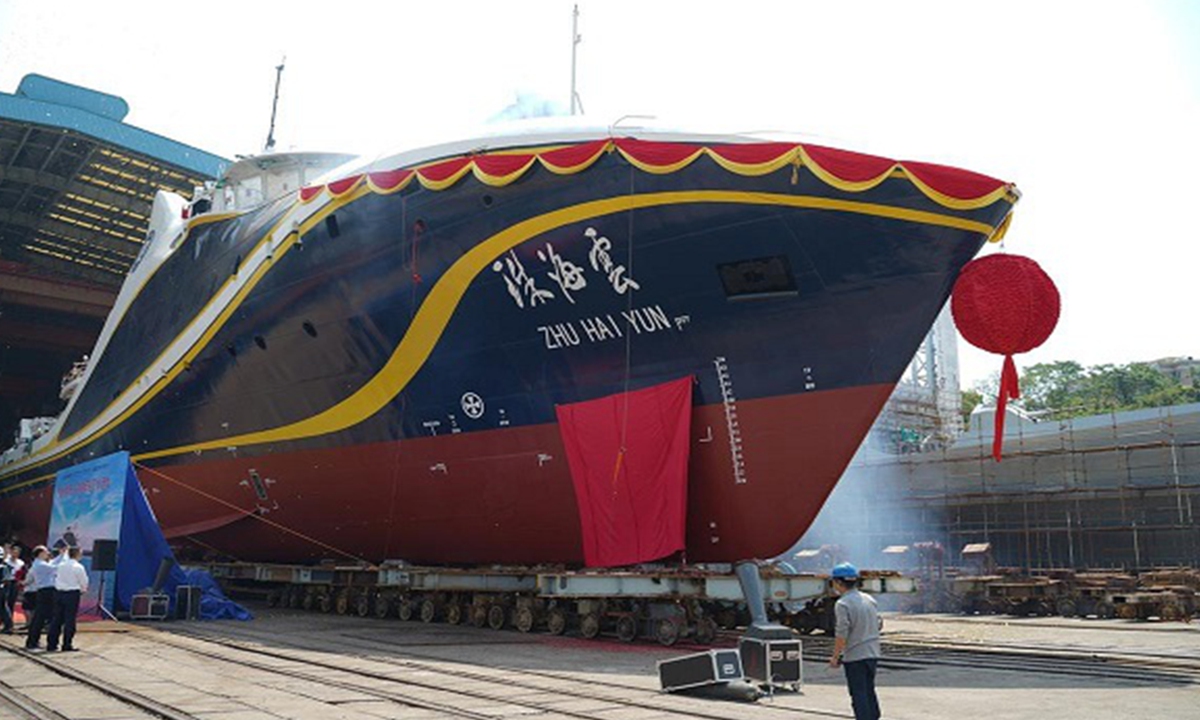China builds world’s first autonomous seaborne drone-carrier

China on Thursday delivered the world's first seaborne drone carrier, the Zhu Hai Yun, capable of operating on its own. The unmanned carrier can be controlled remotely and navigate autonomously in open water. It will undertake marine scientific research and other observations. Photo: Screenshot from cityofzhuhai.com
China on Thursday delivered the world's first seaborne drone carrier, the Zhu Hai Yun, capable of operating on its own. The unmanned carrier can be controlled remotely and navigate autonomously in open water. It will undertake marine scientific research and other observations.
The Zhu Hai Yun entered its home port of Zhuhai Gaolan port in South China's Guangdong Province on Thursday morning and was officially put into use after a year and a half of construction.
Built under the auspices of the Southern Marine Science and Engineering Guangdong Laboratory (Zhuhai), the Zhu Hai Yun is the world's first unmanned system scientific research ship with autonomous navigation and remote-control functions, and has been awarded the first intelligent ship certificate by the China Classification Society (CCS).
The design and construction of the Zhu Hai Yun have followed the principles of green intelligence, scientific support for unmanned systems and "sense of the future." Meanwhile, its power systems, propulsion systems, intelligent systems, power positioning systems and investigation support systems have been independently developed by Chinese research teams.
"This is the first professional sea trial of the Zhu Hai Yun, which aims to test its autonomous navigation performance and the launching of the unmanned craft," said Chen Dake, a member of the Chinese Academy of Sciences and director of the Southern Marine Science and Engineering Guangdong Laboratory.
For the first time, the carrier navigated autonomously for 12 consecutive hours, and realized obstacle avoidance and path planning. It achieved the desired effect and validated the design, Chen added.
The 88.5-meter-long intelligent unmanned carrier is one of the landmark achievements of the Southern Marine Laboratory, with a designed displacement of about 2,100 tons and a top speed of 18 knots.
The ship has a spacious rear deck, which can carry a variety of unmanned air, sea and submarine observation instruments. It can carry out comprehensive marine survey tasks such as ocean surveying and mapping, ocean observation, sea patrol and partial survey and sampling.
Global Times

